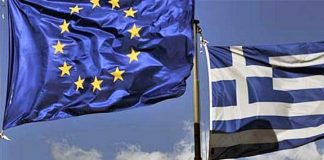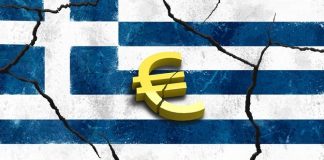debt
The IMF wants to appoint Prime Ministers. They want a Greek...
Greece on track to reach a deal with creditors within 3 weeks, IMF official says
The biggest guarantee that Greece and its creditors will finally...
On The Odiousness of Greek Debt
by Renaud Vivien
Abstract
Unlike the popular narrative, which suggests that the Greek debt crisis was the result of lavish spending, this article demonstrates that...
The power of money: how the rich took hold of our...
By David Beer
To wrest back control from private finance, to reclaim our “hollowed out democratic institutions,” we must begin with a public understanding of...
La Grèce victime de l’entente entre le FMI et ses créanciers
La Grèce et ses créanciers sont sur le point de trouver un « accord ». Il faudra encore faire des économies, cette fois à hauteur de...
The Economics of the Future | by Michael Hudson
At first glance Steve Keen’s new book Can We Avoid Another Financial Crisis? seems too small-sized at 147 pages. But like a well-made atom-bomb,...
Greece to Surrender Gold, Utilities and Real Estate in Exchange For...
Germany announces the final pillage of Greece
Matthew Allen
Mon, Feb 27, 2017
It's official: The Germans will not allow debt relief for Greece. Instead, Berlin...
Ten Proposals to Beat the European Union
This collective text initiated by Eric Toussaint, of the CADTM campaign for the abolition of the debt of the global South has been collectively...
The Greek program is made to fail. Debt is the main...
There's a real need for international debtor rights, says economist Michael Hudson.
SHARMINI PERIES: It's The Real News Network. I'm Sharmini Peries, coming to you...
‘EU is particularly good at doing a terrible job’ – Yanis...
Former Greek Finance Minister Yanis Varoufakis has described the measures taken by the EU to settle the economic crisis in Greece as a “terrible...
First destroying, then expelling Greece. Shaeuble: a “German nationalist” acting in...
German Finance Minister Wolfgang Schaeuble on Wednesday brought back the Grexit issue by saying that unless Greece implements reforms it cannot stay in the...









